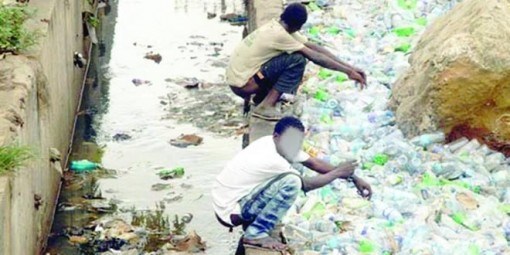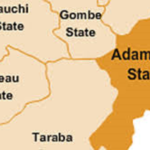Malama Amina Hussaini, a 45-year-old mother of five living in Kofar Gabas community of Kura Local Government of Kano State, said sensitisation on the negative effect of open defecation which she adhered to has helped her and other members of the community to live healthier.
Kura is one of the eight local government areas in Kano State to recently attain the Open Defecation Free (ODF) status.
Malama Amina said initially people of the area were in the habit of defecating in fields, forests, bushes, bodies of water, or other open spaces, adding that people do so because they lacked the knowledge of what such an action did to their lives.
She explained that when the local government officials, community leaders, religious leaders and other bodies related to sanitisation took up the issue through rigorous sensitisation in hospitals, market places, mosques, motor parks, among other places, people became aware that there is a need to stop that habit.
She further said that after people began adopting the strategies to stop open defecation, the community began to notice a lot of positive developments as people no longer fall sick as often as they used to, especially diarrhea and typhoid.
- Post-election dynamism between Trump, Buhari and Tinubu
- Over N135bn matching grants not accessed by state govts – UBEC
“We came to realise that our habit of defecating in the open has been contributing to our health issues. I personally had observed that even the annual cholera outbreak that usually attacks our community is no longer visible at all. Ask around, you will find out that initially people get prepared for cholera and typhoid because we thought it was just like the rainy season; it is also seasonal because our area is a water-logged area due to irrigation activities. We were proved wrong, because we now understand that open defecation has been responsible for our worries and we resolved to stop it completely because we have now learnt what it does to us,” she said.
It was reliably gathered that so far in Kano State, 26 local government areas have been declared as ODF local governments and out of these 26, eight were achieved this year. According to Kura’s desk officer on Water Sanitation and Hygiene (WASH), Malam Ado Goda, several activities have been lined up and executed to attain the ODF status in the LGA. He explained that involvement of the community members has assisted a great deal in ensuring that people have changed their attitudes in terms of open defecation.
He further revealed that measures like collective efforts in digging pits, establishment of Sanitation Vanguard at all the 10 wards in the local government, use of religious leaders among other measures have helped in making people accept and change.
“The local government had introduced the establishment of Sanitation Vanguard at all the 10 wards in the local government. These are youths selected from the communities and are responsible in ensuring that people comply with use of the established pits as well as to ensure that no one defecates openly. We also involved the Imams and other community leaders. I am glad to tell you that people are now more aware of the dangers of open defecation and are ever willing to maintain ODF in the area,” he said.
However, Malam Garba Sallau Yahaya , the assistant head teacher at Tsangaya Model Primary School claimed that he has over 1000 pupils in his school; the school was without a toilet for a long time after the existing one collapsed. He explained that pupils of the school usually use the available spaces to defecate.
He said some months ago a toilet was constructed in the school for the pupils while the teachers use the mosque’s toilets. “Though not enough, it is better than none. We were left with no toilets after the existing one collapsed and to God be the glory, two toilets were constructed for our over 1000 pupils. This development had reduced the level of open defecation around this community. However, we are still advocating for more toilets,” he said.
The ward head of Rimin Kofar Arewa in Kura, Alhaji Ado Ibrahim, said communities in the local government have adopted measures of ensuring they are free from open defecation, adding that they went through several sensitisation processes as community leaders and other stakeholders are being involved in the processes.
He revealed that with the current measures, many communities are now healthier than they used to be, adding that several drinking water sources were also chlorinated.
It can be recalled that in 2019, President Muhammadu Buhari had signed Executive Order 009 to end open defecation in the country by 2025.
The order entitled “The Open Defecation-Free Nigeria by 2025 and Other Related Matters Order 2019.” It became necessary because Nigeria was then ranked the second country with the highest number of people practicing open defecation. Similarly, WASH specialist with the United Nations Children’s Fund (UNICEF) Uba Lawal said the practice has had a negative effect on the populace, especially children, in the areas of health and education and had contributed to the country’s failure to meet the Sustainable Development Goals (SDGs) target.
The sanitation situation in the country prompted the National Council on Water Resources to prioritise the development of a roadmap towards eliminating open defecation in the country. A “National Roadmap” was developed by the Federal Ministry of Water Resources with invaluable support from UNICEF and other key sector players across Nigeria.
It was however gathered that in Nigeria, only Jigawa State attained the ODF status with all its 27 local government areas being declared ODF certified.

 Join Daily Trust WhatsApp Community For Quick Access To News and Happenings Around You.
Join Daily Trust WhatsApp Community For Quick Access To News and Happenings Around You.